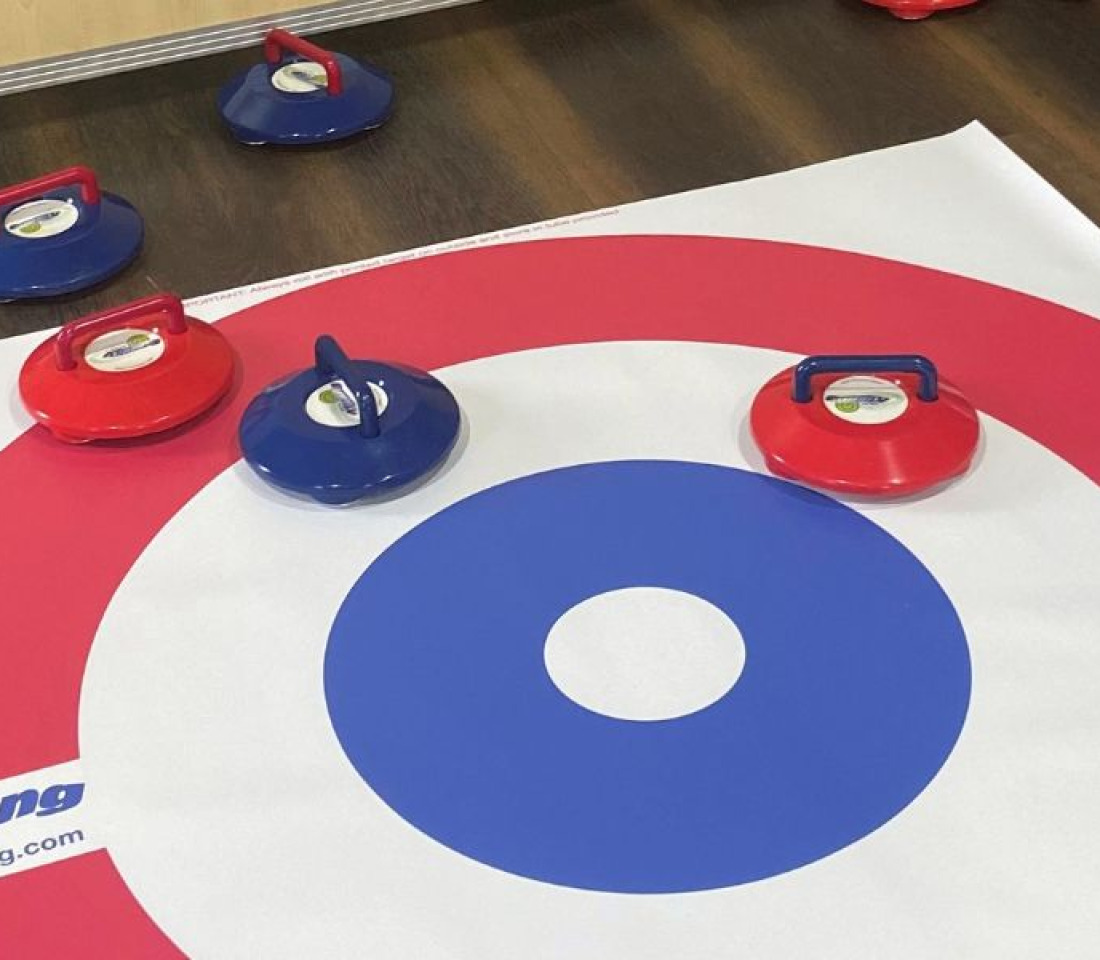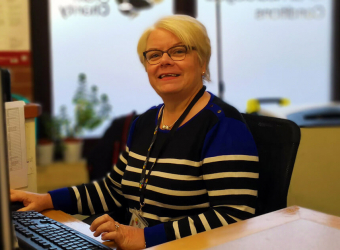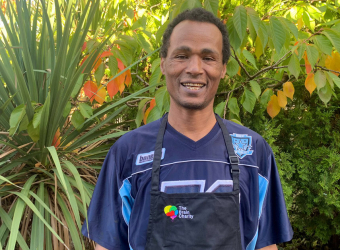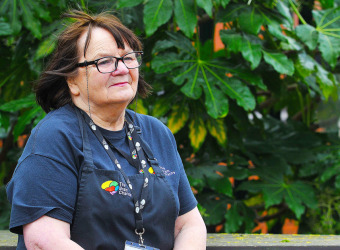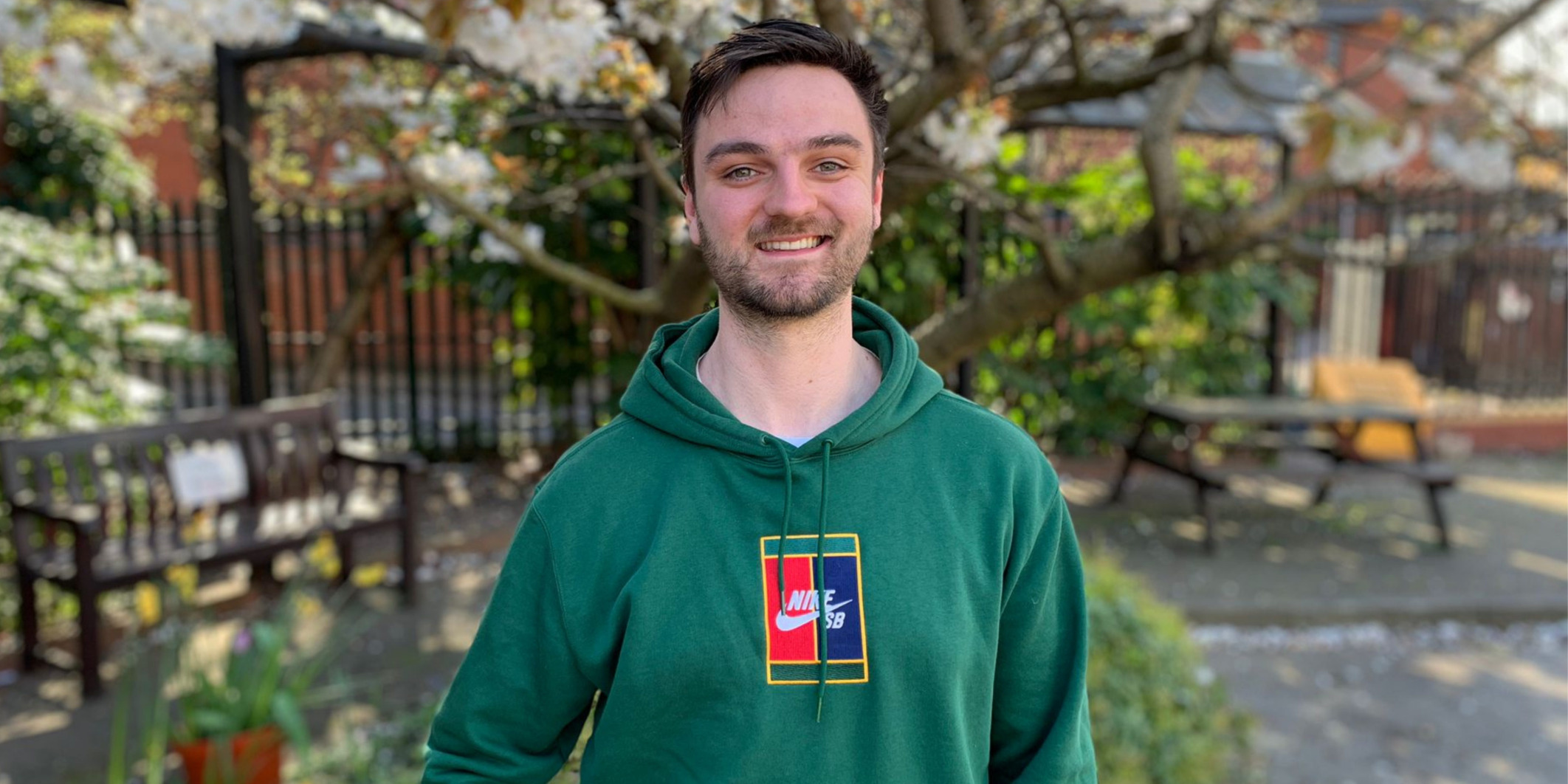
Dominick’s AVM story: “I thought I was too young to have a stroke at 24 – The Brain Charity motivated me to keep going”
Dominick, 25, was working as a mechanical fitter at Jaguar Landrover and renovating his first home when in summer 2021 he started to notice his mood was changing.
He found himself snapping, feeling down and getting angry and upset, but put it down to the stress of recently buying a property and putting long hours into redecorating it.
But in August 2021, Dominick, from Wallasey, Wirral, woke up and suddenly began to repeat words, his right side went numb and his speech became slurred. His girlfriend Laura realised he was having a stroke and called an ambulance.
Dominick was rushed to hospital, where doctors discovered the cause of the stroke was a brain arteriovenous malformation (AVM) – a tangle of abnormal and poorly developed blood vessels which is extremely rare, affecting just 1% of the population.
His mood swings had been caused by the AVM bursting and healing multiple times, causing mini-strokes in the part of his brain that regulated emotions.
Dominick said: “When the stroke happened, I thought I was going to die.
“I closed my eyes and blacked out, I have no memories of that time but I wasn’t unconscious.
“When I woke up a week later, I realized the right side of my body wouldn’t move, and I was on an intensive care ward.
“I couldn’t walk or talk at all. My friends and family were really shocked as I was so young, they didn’t expect it.
“When people think of strokes, they think of an elderly person.
“Even among young stroke survivors, there are people in their sixties who think they’re too young to have had a stroke.”
Dominick underwent a complex 9-hour operation at Liverpool’s specialist brain hospital The Walton Centre to remove the AVM.
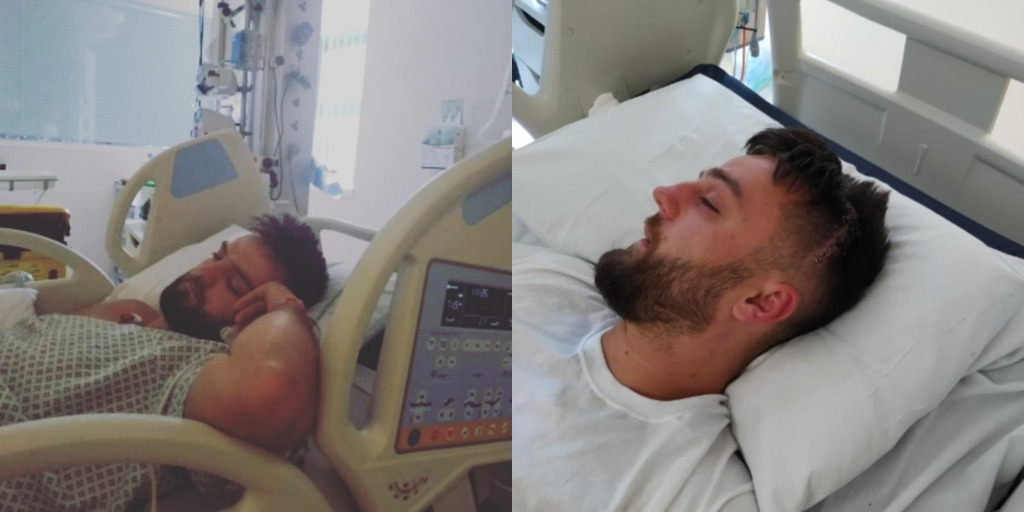
The left side of his brain was damaged by the stroke, which meant he was unable to use the right side of his body and couldn’t talk.
Dominick was diagnosed with non-fluent aphasia, meaning he struggled to produce words and sounds and retrieve language.
Incredibly, two weeks after his surgery he realised he could sing Frank Sinatra’s ‘Fly Me To The Moon’ perfectly, as a different part of the brain controls music and singing to the part which was damaged.
Dominick said: “When I first woke up in hospital, I couldn’t talk at all. A speech therapist asked me to recite the alphabet and I realised I couldn’t.
“But the singing part of my brain wasn’t damaged. Two weeks after surgery I couldn’t talk at all, but I could sing ‘Fly Me To The Moon’.
“When I realized I could sing, I hoped that meant I’d eventually be able to talk again.
“When I first started being able to talk again, I didn’t have a Merseyside accent anymore. I sounded like a robot or Siri.
“It feels so weird when one day you just wake up with a different voice. I felt like I had lost part of my identity – but everyone else was just really pleased I was talking.
“After the stroke my speech was very slow and laboured and my language was limited to small words.
“People often didn’t know where to look and what to say, they would have good intentions but would interrupt or talk over me, or assume I had a learning disability.
“My speech and language therapist at The Brain Charity helped me to break down the longer words into syllables.
“I can now pronounce more words – and slowly but surely, my accent has started to come back.
“Aphasia isn’t the end of your life. If someone you know has aphasia, give them the time to talk.
“For me, I just wanted to be treated the way I was before.”
Dominick spent four months in hospital, and is now having further treatment and therapies in the community as part of his rehabilitation – but some statutory services are limited or have lengthy waiting lists.
He still faces right-sided weakness and debilitating fatigue and has a long way to go in his rehabilitation journey.
But Dominick credits neuroplasticity – the brain’s ability to ‘rewire’ and create new neural pathways after injury or damage – with the progress he’s been able to make so far.
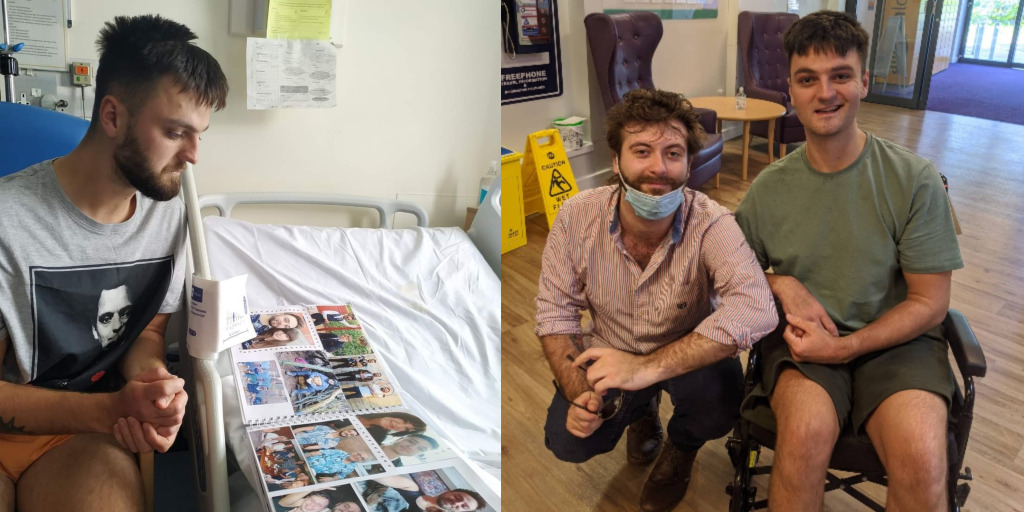
He said: “Before the stroke, I was really into going to the gym.
“Now, my movement being affected is what I find the hardest.
“But when I woke up and realised I couldn’t move that side of my body, I knew it was a waste of time feeling sad about what happened, how young I was to have a stroke and how it had changed my life.”
Around 7 months into his recovery, Dominick was offered free speech and language therapy (SALT) through The Brain Charity.
Our Info and Advice team also assisted him to apply for PIP and signposted him to other potential therapies he may benefit from.
Dominick said: “Brain injury is so diverse – it’s such a broad spectrum and can affect people in so many ways, depending on which part of the brain is affected.
“Charities like The Brain Charity are essential to keeping you motivated and informed, because it can be very easy to just be like ‘this is it’ and give up.
“I definitely experienced that when I was coming out of hospital, but working with The Brain Charity motivated me to keep going.
“When you’re not well, the stuff you used to have no problem doing suddenly becomes a mountain.
“Knowing all my paperwork had been sorted made a huge impact, because I wasn’t in the frame of mind to be able to do that.
“As well as The Brain Charity supporting me in those ways, it was good to speak to other people who had been through similar and were further along in their recovery.”
Categories: Info & advice, Social activities, Support groups, Welfare benefits
Published: 19 April 2022

